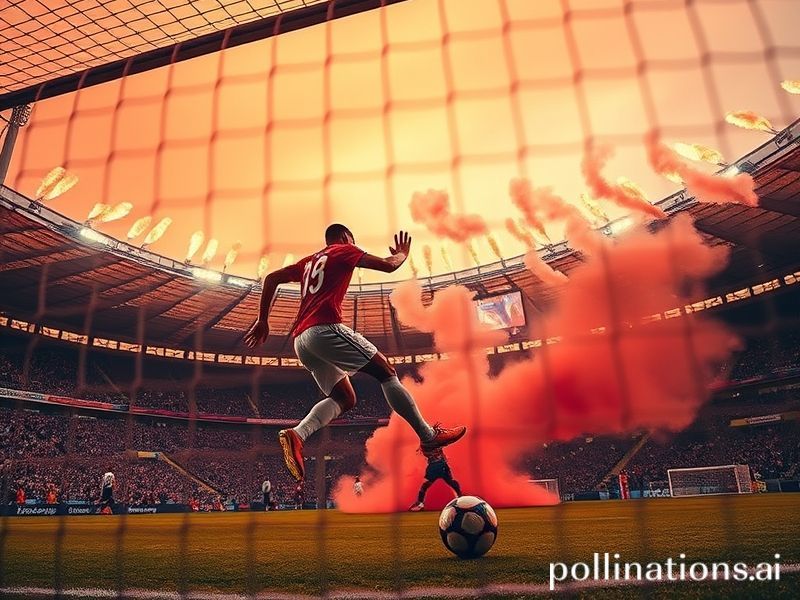Ajax vs Inter: Champions League Quarterfinal as Global Parable of Declining Empires and Streaming Delusions
Ajax vs Inter: the Champions League quarterfinal nobody asked for but everybody will watch anyway, because the modern attention economy demands we rubber-neck at every head-on collision between legacy brands that peaked when fax machines were cutting-edge.
On paper it’s a clash of continental aristocracy: Amsterdam’s once-revolutionary nursery against Milan’s faded La Scala of calcio. In practice it’s two storied clubs locked in the same existential waiting room, thumbing decade-old magazines while the oil-state kids play with newer toys outside. Ajax, still coasting on the fumes of Cruyffian romance, have become a finishing school for richer predators; Inter, fresh off a 2020s spending spree that would make a hedge-fund divorce blush, now operate under the gentle supervision of Oaktree Capital—Wall Street’s idea of a vulture picking through San Siro’s carcass. If ever a tie cried out for a third-half existential crisis, this is it.
The global stakes, should you still believe football is about more than content farming, are modest but revealing. Ajax’s model—buy low, polish, sell high—has been copied from Lisbon to Los Angeles, turning the Dutch academy into a sort of Hogwarts for agents. A deep run would vindicate the spreadsheet monks who insist you can still compete sustainably, even as the sport inflates like a Weimar grocery list. Meanwhile Inter’s Chinese-to-American ownership relay baton illustrates the asset-class migration of elite sport: first the dream of soft-power expansion, then the reality of margin calls. Should the Nerazzurri lift the trophy, expect private-equity bros from Singapore to Stamford to toast with overpriced negronis, secure in the knowledge that cultural capital can, in fact, be securitized.
Geopolitically, the tie is a Rorschach test for whatever anxieties you carried into 2025. Europeans see a parable about post-Brexit relevance: the Dutch exporting talent because the EU single market still beats TikTok visas, the Italians importing it because their birth rate has given up like a 70th-minute Conte substitution. Americans, bless them, will stream it on Paramount+ between ads for pickup trucks and erectile-dysfunction meds, half-wondering why these antique clubs matter while their own MLS franchises rebrand every three seasons. In Asia, where the match kicks off at breakfast, viewers will weigh nostalgia against the more pressing nostalgia of Premier League reruns. And in the Middle East, the whole spectacle is background noise until the semi-finals promise a state-backed super-club, the kind that can afford to buy Ajax and Inter as decorative bookends.
The football itself? Entertaining enough if you enjoy tactical whack-a-mole. Ajax will press like idealistic grad students who’ve read one too many manifestos; Inter will counter like middle managers who’ve learned the only revolution that pays is the one you invoice for. Somewhere in between, a 19-year-old winger will become a meme, a 34-year-old striker will pretend it’s 2014, and UEFA’s VAR officials will practice their best Kafka impressions. By the second leg the narrative will have metastasized into transfer rumors, conspiracy theories about refereeing bias, and the inevitable TED-talk thread on how this tie “tells us everything about late capitalism.” Spoiler: it doesn’t, but that won’t stop the takes.
Come the final whistle, one set of fans will delude itself that history has been restored, the other will mutter about curses and market inefficiencies. Both will queue for merch priced in a currency neither club truly controls anymore. And somewhere in a glass box, a broadcaster will already be cutting the highlight reel to 15 seconds, captioned “Ajax/Inter: ICONIC.” Because if modern football teaches us anything, it’s that the game is never really about the game—it’s about how quickly we can monetize the memory of something that used to matter.







